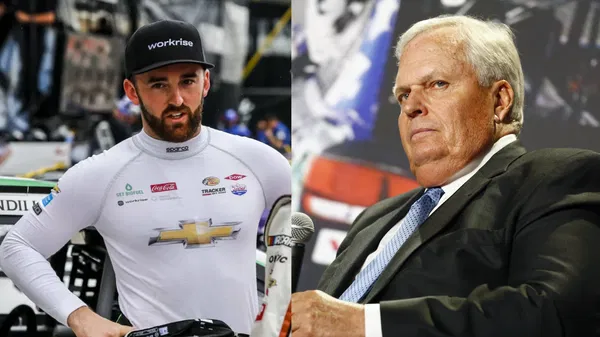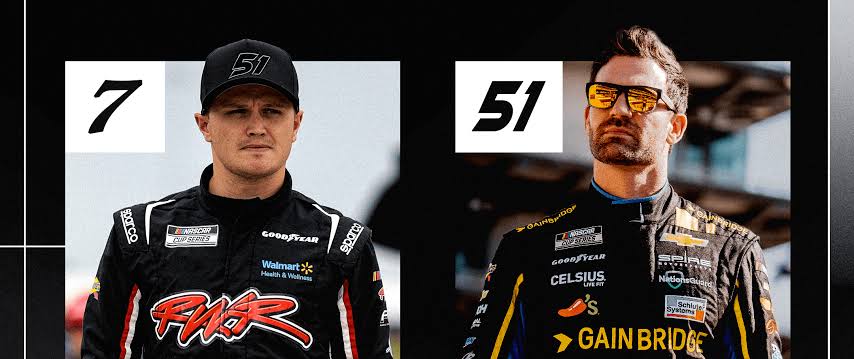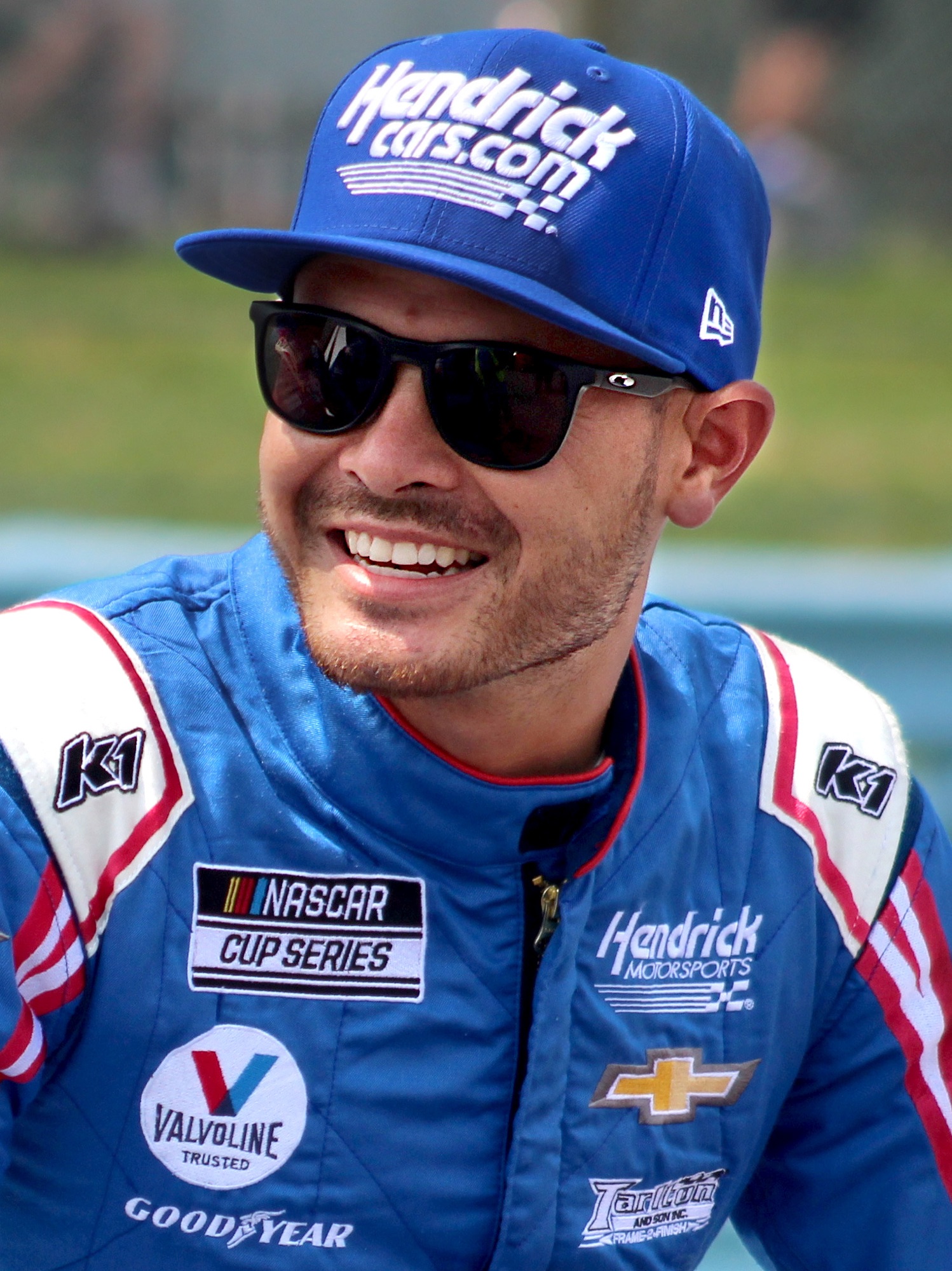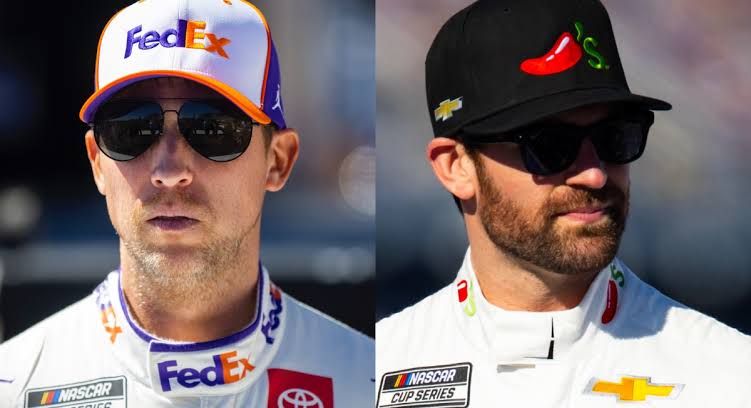Austin Dillon and Richard Childress faced a significant setback this week as their efforts to overturn the Richmond penalty were unsuccessful. The appeals panel upheld the decision, ultimately costing Dillon a spot in the playoffs. Despite numerous attempts from Richard Childress Racing (RCR) to challenge the ruling, they were left empty-handed. In a final move, Dillon took a subtle jab at NASCAR and Hendrick Motorsports as he sought to justify his actions.
The odds of Dillon winning the appeal were slim from the outset, given the circumstances surrounding his actions. NASCAR, under immense pressure from other teams and drivers, was compelled to act decisively. While many viewed the decision to strip Dillon of his playoff berth as justified, it left a bitter taste in the mouths of Richard Childress and his team.
In an attempt to rationalize the penalty, Dillon indirectly brought Hendrick Motorsports into the discussion. Last Monday, the appeals board confirmed their decision to maintain Dillon’s penalty. This was a tough blow for the #3 team, and Richard Childress expressed his dissatisfaction, suggesting that the ruling could have long-term consequences for NASCAR. Childress went as far as to say that the decision would change NASCAR forever, implying that the sport would not be the same in the aftermath.
Austin Dillon, like Childress, was visibly unhappy with the outcome. According to Fox Sports journalist Bob Pockrass, Dillon felt his team had a solid argument for reversing the decision and believed he had earned a rightful place in the playoffs. Dillon argued that Denny Hamlin had a significant steer angle as he slid up the track and into him, leading to the incident. Dillon contended that there were multiple factors at play in the wreck and that his team’s spotter had been wrongly implicated. He stated that the spotter’s comment to “wreck him” was taken out of context, as the wreck had already occurred by the time the comment was made.
Dillon also defended his actions involving Joey Logano, stating that the interaction did not warrant punishment. He highlighted that Logano himself admitted to being four or five car lengths ahead, whereas NASCAR’s data indicated the gap was much smaller. Dillon argued that the discrepancies in speed and distance contributed to the incident, further complicating the situation. He expressed frustration that these nuances were not given proper consideration.
Regarding the incident with Hamlin, Dillon elaborated on the details, emphasizing that both drivers were simply reacting to the situation as it unfolded. He pointed out that Hamlin’s spotter was constantly advising him about Dillon’s position, and the contact that occurred was a result of Hamlin sliding up the track. Dillon insisted that his actions were merely a response to Hamlin’s slide and that there was no malicious intent behind it.
In an effort to bolster his case, Dillon referenced past incidents involving other drivers. He mentioned Chase Elliott’s collision with Hamlin at Charlotte last year and William Byron’s encounter with Hamlin at Talladega in 2022. Dillon noted that in Byron’s case, despite being fined and docked points, his playoff spot remained unaffected. By bringing up these examples, Dillon hinted at a perceived bias towards Hendrick Motorsports, suggesting that NASCAR may have shown favoritism in similar situations.
However, even with these arguments, the reality remains that Dillon’s actions denied two drivers a legitimate chance at winning the race. Regardless of whether Dillon had a valid point, the decision is final, and Richard Childress appears to be struggling to accept it.
The 2024 Cup Series has been a challenging season for Richard Childress Racing, particularly with Kyle Busch failing to secure a single win so far. Dillon’s victory at Richmond was crucial for the team, as it would have secured a playoff spot and provided a significant financial boost. With the penalty upheld, Childress lamented the substantial financial loss, estimating it to be over a million dollars. He expressed his disappointment, noting that the ruling had far-reaching implications for the sport, particularly in terms of racing strategies on the final lap.
Childress also raised concerns about the ambiguity of the rules, questioning how drivers would interpret the boundaries in future races. He cited the incident involving Hamlin as an example, suggesting that the ruling could have a chilling effect on aggressive racing.
Ultimately, while Dillon and Childress may feel justified in their grievances, the appeals panel’s decision stands. The broader NASCAR community largely agrees with the ruling, and it is time for RCR to move on. With the Darlington race on the horizon, the team has an opportunity to end the season on a positive note and put this controversy behind them.
Austin Dillon Exposes NASCAR’s Subtle HMS Favoritism After Being Robbed of Playoffs




